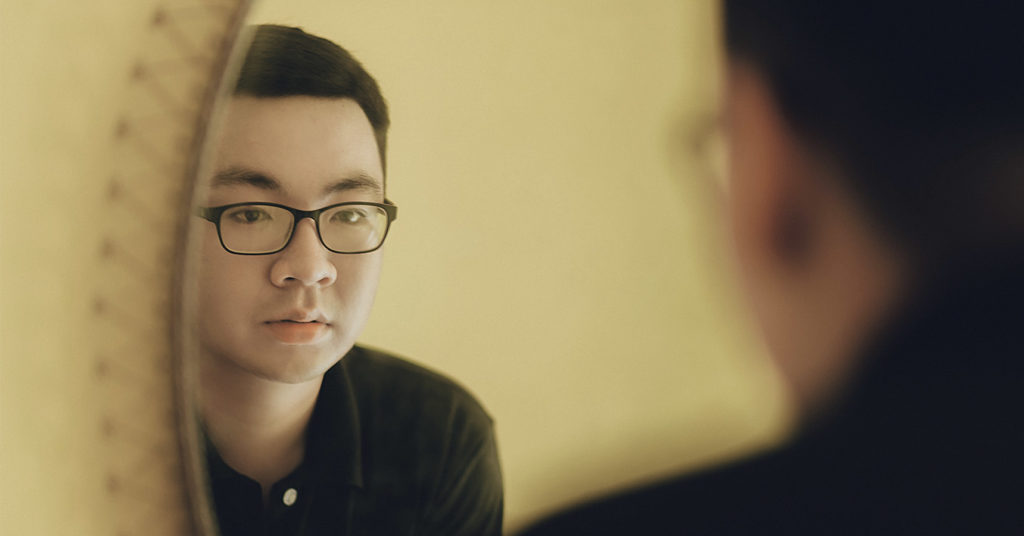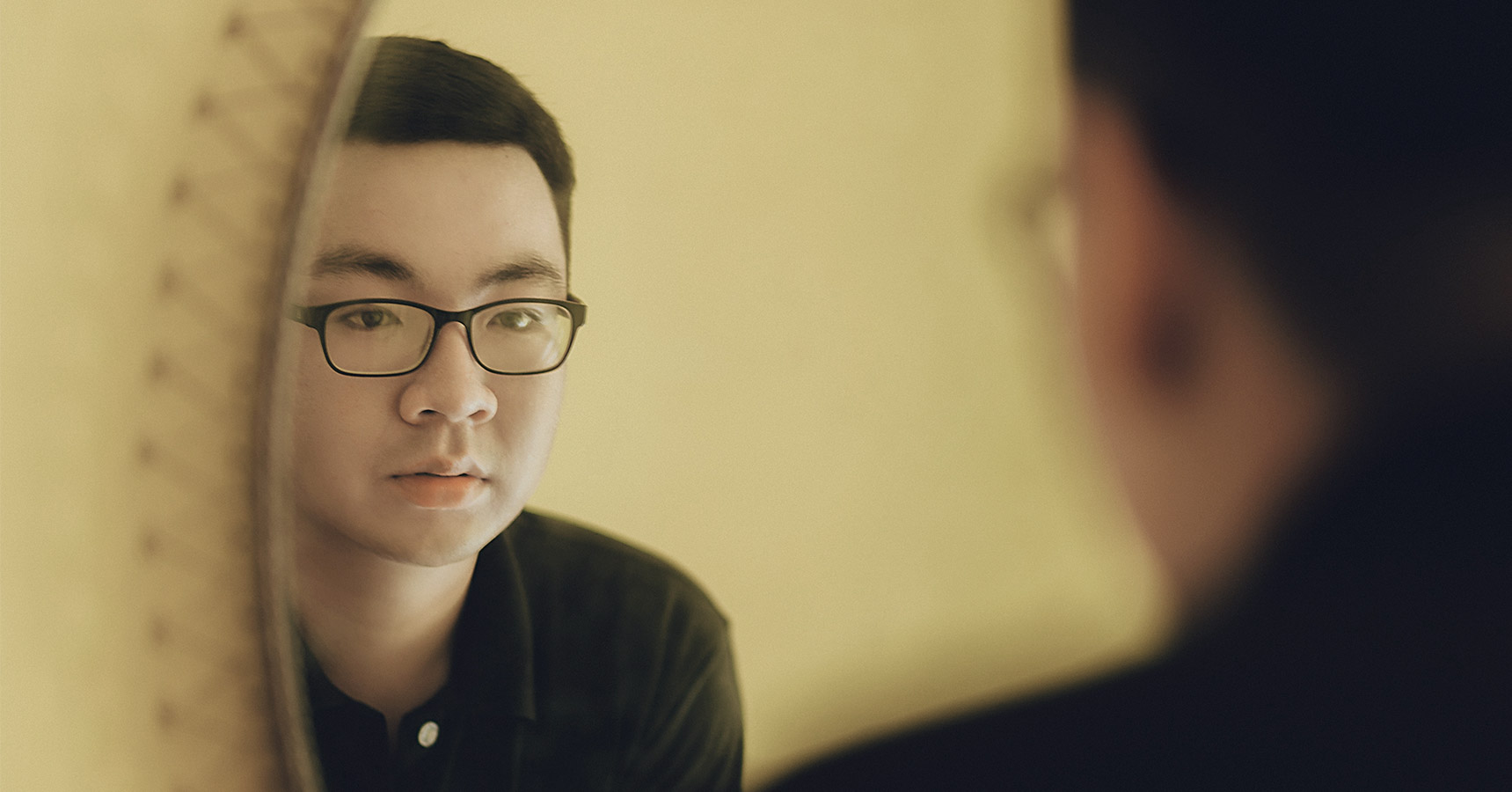I Have Worth and I Live According to my Worth


by Michael Haehnel
No one gave me a roadmap for coming out of the closet. I didn’t realize I would need one.
I thought it would be a simple transition from “having a secret” to “not having a secret.” Fortunately, God, who was well acquainted with the coming-out process, held my hand.
To my credit, I had always understood that I had worth. I had always believed that God loved me unconditionally. But I also believed that God’s love for me—that bright circle of warmth—indented in a way that excluded my gayness. I believed I had infinite worth, but that my gayness had no worth at all. What a marvel and a miracle it was as God slowly, degree-by-degree, helped me to see that the true shape of the circle of Divine love included my gayness—encompassed and embraced it, illuminated and delighted in it.
Once I gained that phenomenal understanding, I was ready for the next step of my journey. It was not enough to know that my gayness was part of my worth; God wanted me to live my life in a way that was consistent with my worth.
What followed was probably the most stunning personal revelation of my life: God called on me to alter my relationship with the LDS Church. I could not deny my gratitude to the Church for helping me discover God. I could not deny the Book of Mormon; regardless of where it came from, it presented truth to me like a flower opening, petal by petal. But I came to understand that the Church also presented a real danger to me, and I needed to put space between it and me.
Currently, I attend church and I am still a member, but I have chosen not to have a temple recommend and not to accept callings. In this way, I can enjoy the spirituality I find at church without fear that the church might punish me or take things away from me. This, for me, is a major part of living according to my worth. My solution may not be everyone’s solution, but it works well for me.
It is not the point of this article to present specific solutions. Rather, I wish to expand on the idea that no matter what our coming-out is like, sooner or later each of us needs to internalize and act upon two principles:
1. I have worth.
2. I live according to my worth.
What those two things mean will differ from person to person, but both principles need to unfold in some form.
I interviewed three other people affiliated with Affirmation. I was looking for evidence of these milestones in their journeys. I think many of you will recognize Grayson Alexander Moore and Mike Peterson.
“Wait,” you say, “you said three.” Indeed I did. I interviewed one other friend who was happy to share her thoughts with me. However, after the interview, her circumstances changed. It is the reality of queer lives that the world around us can put us (and our loved ones) in a pinch. So it is that my friend found that she could not allow her name or her direct quotes to be included in this article. I could have interviewed someone else, but I decided against that. There is worth, yes, and there is living according to our worth—indeed. AND there are the fickle winds that blow. If I speak of principles and ideals but ignore adverse realities, what’s the good in that? Better to let this article itself stand as an example of how we go on, even under imperfect conditions… So my third friend is here as well, albeit anonymously and without direct quotes.
I Have Worth
Mike Peterson realized he was gay when he was in seventh grade. A popular TV show at the time was The Six Million Dollar Man. Mike found that while his male classmates obsessed over the Jaime Sommers character, he was primarily interested in the six-million dollar man himself, played by Lee Majors. At one point, Mike stood in front of the bathroom mirror and said to himself, “I am gay.” Then he added, “No one will ever, ever know.” He hung a Farrah Fawcett poster in his bedroom and played it straight throughout his junior-high and most of his high-school years.
Mike does not describe a point where he suddenly knew that being gay was an intrinsic part of his worth. But he does say that when a church pastor tried to “turn him straight,” he knew that that would never work. He reflects that more than finding value in being gay, he is proud of how he handled coming out. His was a conservative family in a conservative Midwestern community, yet he managed to come out with dignity and without too many bruises.
Grayson Moore was frustrated in his youth and asked himself, “Why do I have a hard time fitting into these boxes?” He knows now that he was always trans, always queer, but when he was younger he didn’t have those words at his disposal. He was different, and he was ashamed of that. What allowed him to turn the corner was a realization that “all the rulebooks were written for checkers, but I was playing chess.”
Understanding that the playbook was different for him was—to extend the metaphor a little further—a game changer. As he set out to find his own personal strategies, he applied the same metaphor to various other aspects of his life. Ultimately he is now able to say, “I know that I am weird, and I embrace it.”
Moreover, he feels that the understanding he has gained enables him to serve others: “Part of what queer people bring into the world is that we can be boundary crossers—we can help others cross boundaries that they need to cross. We can help straight people cross the boundaries with their own differences from the norm.”
The other person I interviewed was disappointed in herself when she failed to live up to church standards. But she came to know that God understood the impossibility of her situation and accepted the choices she had made. Moreover, she feels God’s love through the abundance of things in the world that bring her joy.
As I spoke to Mike, Grayson and my other friend, I did not hear any of them identify a clear-cut point of realization that their queerness was an intrinsic part of their worth. Their journeys were not quite the same as mine. Yet in each of their accounts, I could detect a transition from confusion and discomfort to wholeness and peace. It was clear that each had come to the place where they could say, “I have worth.”
I Live According to My Worth
Mike identifies clearly what it means to him to live according to his worth: “I was able to build my life in a place where being gay was not an issue.” He also says, “One of the things that I am happiest about is that I am in a relationship that benefits us [both] in a really wonderful way—the thing I am proudest about right now. Jeff [my husband] helps me become a better person.”
Grayson describes an internal change: “I would say instead of feeling all tangled up in your worries and what you should be, you can be connected and touch things for real and the world feels so real in a way that it hadn’t before.” He finds that living in this way, “feels like a door has been opened for me; instead of constantly second-guessing myself, [I am] more able to follow my instincts—set aside that second-guessing and do more according to your instincts.”
Each also saw a clear demarcation between living according to their worth and the alternative:
Mike: “[Church leaders] say that [queer] feelings aren’t sinful, but they don’t want homosexuality to exist. That is toxic. Like trying to be Jewish in Europe in World War II.”
Grayson: “The prevailing voices of religion is that good is all about avoiding evil. I don’t think that’s an accurate picture of what good is. Good is not about getting rid of bad things, but seeing the empty places and starting to fill them.”
My other friend had similar thoughts to share: she better understands (1) when to let go of others’ approval rather them allow them to control her, and (2) when to stand up to prejudice rather than let it slide.
An important aspect of living according to one’s worth is to set boundaries against circumstances, situations, relationships and influences that may undermine one’s sense of worth.
Follow-up to Pride
Several years ago, the Affirmation community mourned the loss of several people who committed suicide in close succession. The suicides took place during the summer, and one person commented that perhaps they were the result of a let-down after Pride. The commentator suggested that during Pride individuals received a welcome, exhilarating boost to their sense of worth; then afterward, they despaired as they returned to circumstances where their sense of worth slipped away. To substantiate this theory, some social scientist would have to implement a study; nevertheless, for now, it is a credible hypothesis.
Perhaps this is a good time—right after many of us have participated in Pride and gained a boost to our sense of worth—to identify what living according to our worth means. We might want to designate July as the start of the Queer New Year—the time when we make resolutions about how we will change our circumstances and set our boundaries to live according to our worth. An important part of this may include helping others, youth in particular, who often have limited power to change their circumstances or set boundaries.
My thanks to Grayson Alexander Moore, Mike Peterson and my other friend for their time and for wonderful conversation. I appreciate their insight and example. May we all, like they, each find our worth and live according to it.
Even as adverse winds blow.